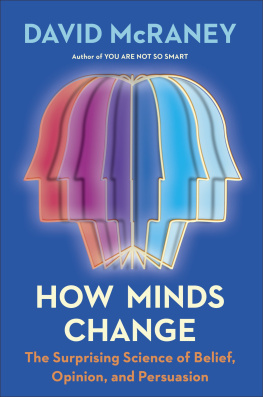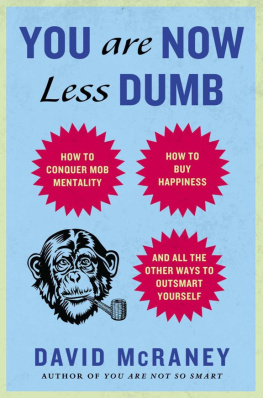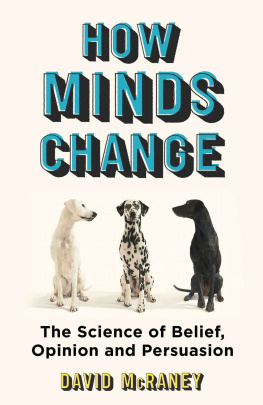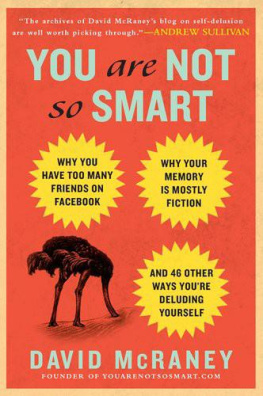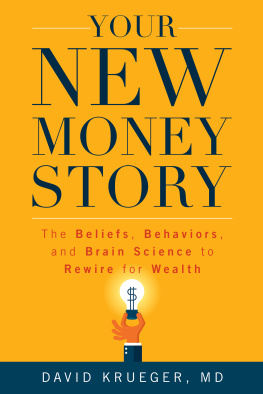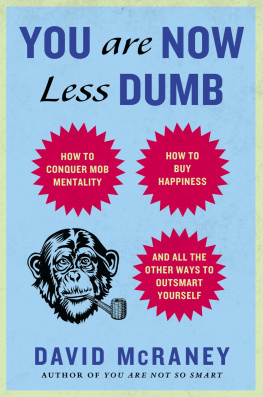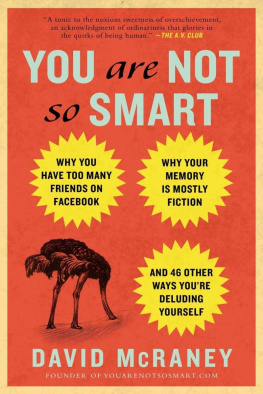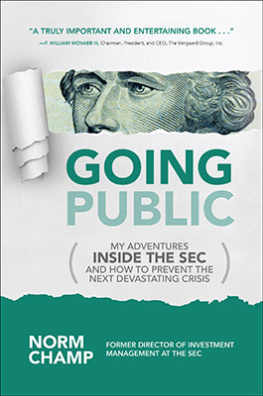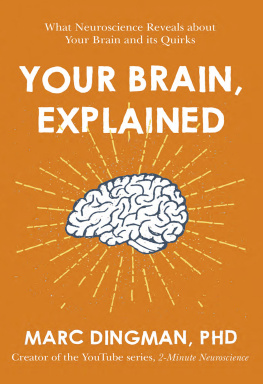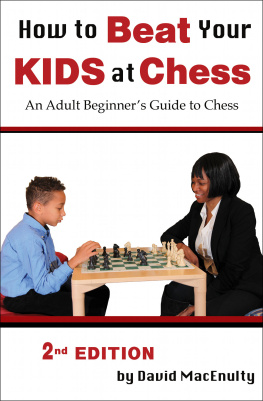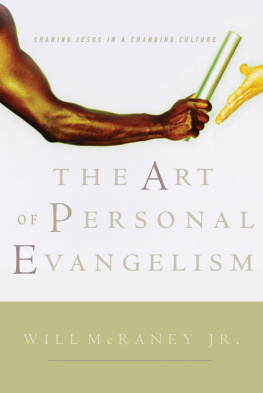David McRaney - You Can Beat Your Brain
Here you can read online David McRaney - You Can Beat Your Brain full text of the book (entire story) in english for free. Download pdf and epub, get meaning, cover and reviews about this ebook. year: 2013, publisher: Oneworld Publications, genre: Religion. Description of the work, (preface) as well as reviews are available. Best literature library LitArk.com created for fans of good reading and offers a wide selection of genres:
Romance novel
Science fiction
Adventure
Detective
Science
History
Home and family
Prose
Art
Politics
Computer
Non-fiction
Religion
Business
Children
Humor
Choose a favorite category and find really read worthwhile books. Enjoy immersion in the world of imagination, feel the emotions of the characters or learn something new for yourself, make an fascinating discovery.

- Book:You Can Beat Your Brain
- Author:
- Publisher:Oneworld Publications
- Genre:
- Year:2013
- Rating:3 / 5
- Favourites:Add to favourites
- Your mark:
- 60
- 1
- 2
- 3
- 4
- 5
You Can Beat Your Brain: summary, description and annotation
We offer to read an annotation, description, summary or preface (depends on what the author of the book "You Can Beat Your Brain" wrote himself). If you haven't found the necessary information about the book — write in the comments, we will try to find it.
You Can Beat Your Brain — read online for free the complete book (whole text) full work
Below is the text of the book, divided by pages. System saving the place of the last page read, allows you to conveniently read the book "You Can Beat Your Brain" online for free, without having to search again every time where you left off. Put a bookmark, and you can go to the page where you finished reading at any time.
Font size:
Interval:
Bookmark:
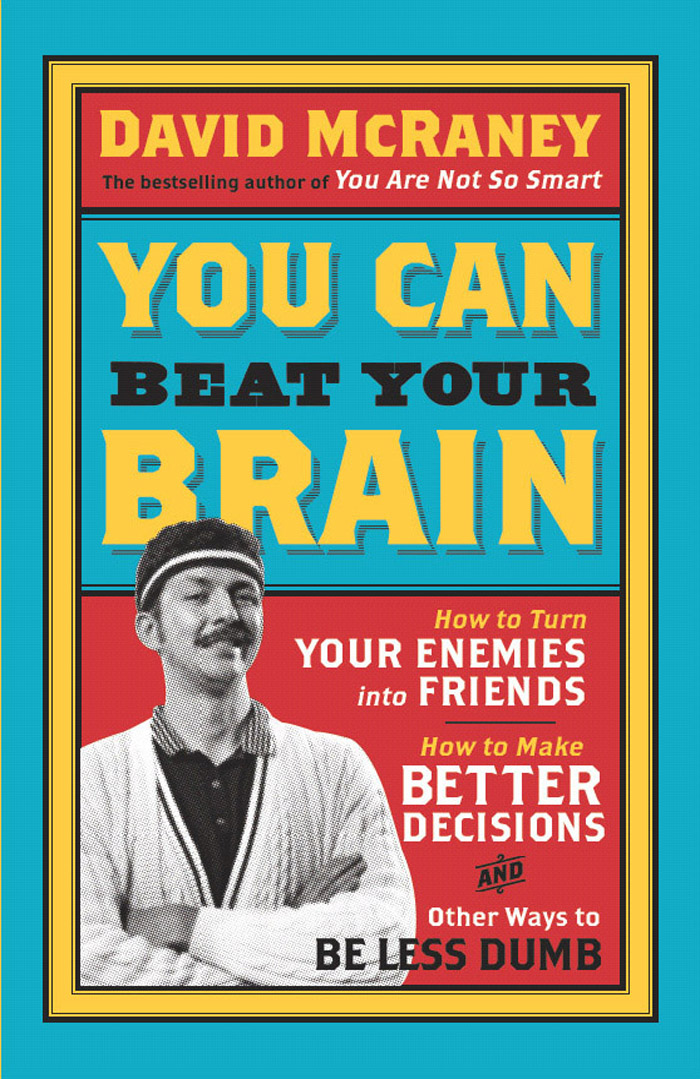
PRAISE FOR
YOU ARE NOT SO SMART
Simply wonderful. An engaging and useful guide to how our brilliant brains can go badly wrong.
Professor Richard Wiseman author of 59 Seconds
Fascinating! Youll never trust your brain again.
Alex Boese author of Elephants on Acid and Electric Sheep
A much-needed field guide to the limits of our so-called consciousness.
William Poundstone author of Are You Smart Enough to Work at Google?
Want to get smarter? Read this book.
David Eagleman neuroscientist and author of Incognito
Every chapter is a welcome reminder that you are not so smart yet youre never made to feel dumb. You Are Not So Smart is a dose of psychology research served in tasty anecdotes that will make you better understand both yourself and the rest of us. Give yourself every advantage you can and read this book.
Alexis Ohanian co-founder of Reddit.com
David McRaney is a journalist, new media guru, and self-described psychology nerd. Twice-recipient of the William Randolph Hearst Award, his first book, You Are Not So Smart, was an international bestseller. He lives in Mississippi and blogs at youarenotsosmart.com.
BEAT YOUR
BRAIN
How to Turn your Enemies into Friends,
How to Make Better Decisions, and
Other Ways to Be Less Dumb
DAVID MCRANEY

A Oneworld Book
First published in Great Britain and the Commonwealth by
Oneworld Publications 2013
First published in the USA by Gotham Books, a member of Penguin Group (USA)
Inc., 2013
Copyright 2013 David McRaney
The moral right of David McRaney to be identified as the
Author of this work has been asserted by him in accordance
with the Copyright, Designs and Patents Act 1988
All rights reserved
Copyright under Berne Convention
A CIP record for this title is available
ISBN 978-1-78074-374-5
eISBN 978-1-78074-316-5
Set in Granjon
Designed by Elke Sigal
Printed and bound by Norhaven A/S, Denmark
Oneworld Publications
10 Bloomsbury Street
London WC1B 3SR
Stay up to date with the latest books,
special offers, and exclusive contents from
Oneworld with our monthly newsletter
Sign up on our website
www.oneworld-publications.com
For Maggie.
Thanks for helping me get out of that swamp.
YOU CAN BEAT YOUR BRAIN

THE MISCONCEPTION: You are a being of logic and reason.
THE TRUTH: You are a being capable of logic and reason who falls short of that ideal in predictable ways.
This is a book about self-delusion, but also a celebration of it. You see, self-delusion is as much a part of the human condition as fingers and toes, and that is what we are going to explore here. Delusions, that is, not phalanges.
You assume you are intelligent, capable, rational, and full of the same glorious reason that invented calculus and ginger snaps. You were born with a chip on your shoulder, and youve grown into a sort of undeserved confidence over the years. Its a human foible that comes in many flavors, and Im assuming you are human. If you are a hyperintelligent dog, a member of an alien race, or a robot historian from our future, I apologize; please move on to the first chapter. If not, proceed toward your epiphany.
The human mind is obviously vaster and more powerful than any other animal mind, and thats something people throughout all human history couldnt help but notice. You probably considered this the last time you visited the zoo or watched a dog battle its own hind legs. Your kind seems the absolute pinnacle of what evolution can produce, maybe even the apex and final beautiful result of the universe unfolding itself. It is a delectable idea to entertain. Even before we had roller skates and Salvador Dal, it was a conviction in which great thinkers liked to wallow. Of course, as soon as you settle into that thought, youll accidentally send an e-mail to your boss meant for your proctologist, or youll read a news story about how a man got trapped in a public bin in Aberdeen. Its always true that whenever you look at the human condition and get a case of the smugs, a nice heaping helping of ridiculousness plops in your lap and remedies the matter.
The truth is that the human brain generates a mind that is deeply flawed. There are some things you just arent very good at and never will be. Evidence of your dumbness is everywhere. Calculators, notepads, to-do lists, checkbooks, alarm clocksthere are hundreds of inventions and applications for sale in every marketplace to make up for your shortcomings. Entire fields of expertise exist to make up for a gulf in your abilities.
Our discussion of the scientific study of self-delusion is probably best led off with the concept of preconceived notions, so lets begin with a brief story about the thirty-first time Dartmouth College and Princeton University faced off in American football. That game helped launch an endless fleet of expeditions into the human mind, many of which you will read about after this paragraph concludes.
Both founded in the mid-1700s, Dartmouth and Princeton are part of the Ivy League of universities in the northeastern United States. You may have heard of the other six universities: Brown, Columbia, Cornell, Harvard, Penn, and Yale. Ivy League has become synonymous with the sort of people who wear fancy pants. The names are among the most desired bullet points on a CV, but Ivy League began as a term sportswriters used for the eight universities in New England that tended to compete against one another exclusively in athletics and, well, almost everything else.
In 1951, Dartmouth and Princeton squared off in the last game of the season for both universities. Princeton had won every game up to that point. Its star player, Dick Kazmaier, had been featured on the cover of Time that same year and would go on to become the last Ivy League player to receive the Heisman Trophy. It was a big game for both teams, which is why Princeton went bonkers in the second quarter, after a Dartmouth player broke Kazmaiers nose. In the next quarter, a Princeton player snapped a Dartmouth players leg. The whole event was brutal, and both sides racked up plenty of penalties before Princeton finally won by a final score of 130.
Psychologists Albert Hastorf at Dartmouth and Hadley Cantril at Princeton noticed soon after the game the student newspapers of each university began printing stories that seemed to suggest two versions of the truth were in open competition to become the official version of reality. A year later, the two published a study that is now considered by many to be the best starting point for talking about self-delusion.
Hastorf and Cantril noticed that Princetons newspaper and alumni newsletter published accounts of the game that painted the Dartmouth team as bullies who played dirty. At the same time, Dartmouths newspaper published editorials explaining away the injuries caused by its team while also noting the awfulness of Princetons tactics. Both sides, the researchers said, remembered seeing different games. What if these students could watch the game again? thought the scientists. Sure, they remembered the game differently, but what if we showed them a film of it? Would they see the game differently in real time as well? To answer this, the scientists acquired a recording of the entire matchup, showed it to undergraduates from both universities, and had those students check when they saw infractions, in addition to marking how severe each infraction seemed. The students also filled out questionnaires.
Font size:
Interval:
Bookmark:
Similar books «You Can Beat Your Brain»
Look at similar books to You Can Beat Your Brain. We have selected literature similar in name and meaning in the hope of providing readers with more options to find new, interesting, not yet read works.
Discussion, reviews of the book You Can Beat Your Brain and just readers' own opinions. Leave your comments, write what you think about the work, its meaning or the main characters. Specify what exactly you liked and what you didn't like, and why you think so.

